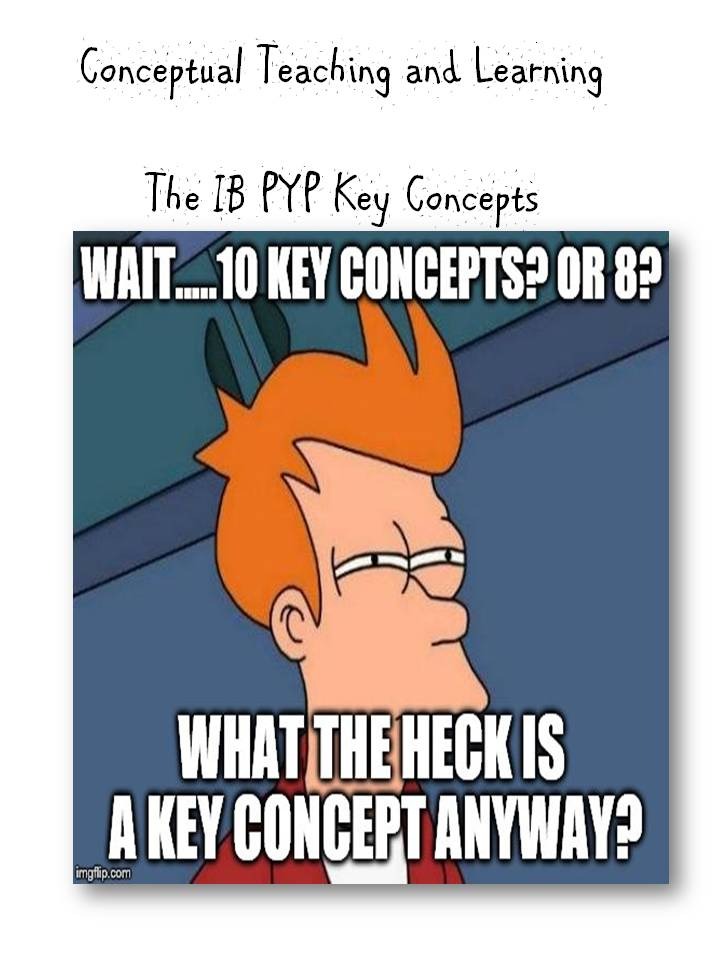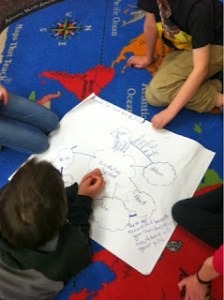Welcome to PYPteachingtools.com
Using the IB PYP Key Concepts


What is A Key Concept?
I was asked recent to show a few of our teachers how I incorporate the key concepts into everyday learning. I felt that there may be a few more of you out there who’d also be interested. So, here we go.
The IB PYP now has 7 key concepts that are designed as the lens or the “big picture”of which we look at our lines of inquiry within each of our six units of inquiry. ( 4 units for EYP)
Integrating Math into an IB PYP Unit of Inquiry


I’m often asked how I integrate maths into our IB PYP units of inquiry. I won’t deny that depending on the unit, it can sometimes be easier said than done. However, I’ve found over the years, that it’s best to keep it relaxed and, if necessary, simply focus on concepts in maths rather than content. Often, especially within the public IB schools in the USA, we are expected to meet certain maths standards by a certain time. This often results in a clash of math units and units of inquiry and a creative juggle ensues. But hey, who doesn’t love a challenge? The rest of the IB world? You’ve got it luckier, I assure you! Anyway, a great resource for math in the beginning of the year is https://www.youcubed.org/. It encourages a maths mindset and is centred around collaborative thinking. It does require signing up for a free account but, once you’re in, you can view the Week of Inspirational Math. This gives you a couple of days of lessons ...
My Favourite Read Alouds for IB PYP Units

I’ve been reflecting lately on the books I’ve used as read alouds throughout our various units of inquiry, that have both reinforced the inquiry as well as integrated many reading skills and strategies. I’ve compiled a list that may help you also, when planning your units of inquiry and aligning them with the elements of the PYP as well as your reading standards. Over the years, I have taught mainly from 3rd grade ( Primary 3/4) up to 6th grade ( Primary 7) and so you’ll find these books to fit the upper elementary age range more.
There is another blog post relating specifically to books that I love when reinforcing the traits of the Learner Profile. You can link to that post here. But this list is more for read alouds that will tie to many of the essential elements of the PYP, as well as slot in nicely to particular Transdisciplinary Themes.
I have created this list for your convenience. You can click on the picture and the title of each book and it will take you directly to its...
Engaging Learners with Authentic Inquiry

Engagement. You know the scene; the entire class is actively involved in their learning. There’s a quiet buzz going on all around. Children are chatting to each other, conversations are focused discussing ideas, plans, strategies. There is movement around the room, with tools and equipment being independently gathered, heads are together, collaboration is seen all around. You know that you’ve nailed it when the busyness of learning is their business!

But…..and there’s definitely a but, how do we keep this going across the curriculum? Is it too idealistic? Time consuming? Can we cover all standards this way? Can we really trust the kids to run with this? How do we, as the teacher, fit it in?
This post isn’t about what engagement looks like in your classroom but rather about how to initiate and maintain the engagement within authentic inquiry focused learning. Engagement is so much more than just keeping the children busy with activities to complete. Far more than simply looking b...
Developing Student Led Inquiry in the IB PYP

The biggest question, when I’m planning an IB PYP unit of inquiry is, at what level is my class in terms of experience and initiative when it comes to inquiry? In other words, which level of student inquiry will I be planning around – structured inquiry, guided inquiry or open inquiry?
The biggest catastrophe that can happen to a teacher embarking on inquiry for the first time is to implement an open inquiry without fully understanding the level of her students’ independent inquiry skills. There aren’t many children who are new to the IB PYP that have been formally guided through the skills necessary for independent inquiry. This can result in confusion at best and frustration at the worst. Not to mention that moment when you just have to abandon the lesson and re-group. I know this, cos I’ve been there many a time! Haha!
We want to ensure that our inquiries are structured in such a way that will introduce strategies and guide and support the children as they experience and deve...
Making the IB PYP Central Idea Meaningful

Following on from my recent live webinar on Facebook, this week’s chat is looking at different approaches to the IB PYP Central Idea and how each method can benefit the learner in meaningful and effective ways within the inquiry process. I have added the video below.
When youre new or newish to the PYP, the jargon alone can be intimidating, nevermind what youre supposed to do with it all. When you are presented with a central idea that leaves you with the thoughts, ” Huh? What does that even mean?” , this is a huge clue that the central idea is, in my opinion, ugly! If you are struggling with it, how do you think the children will feel? Over the years I have found there to be 3 types of central ideas: the good, the bad and the ugly. Here is one UGLY example that stuck with me ( for obvious reasons). It was geared towards 7 & 8 year olds. I am not kidding!
“The relationships within a community can determine the structure and engagements of its organisations within.”
So, after deciph...

